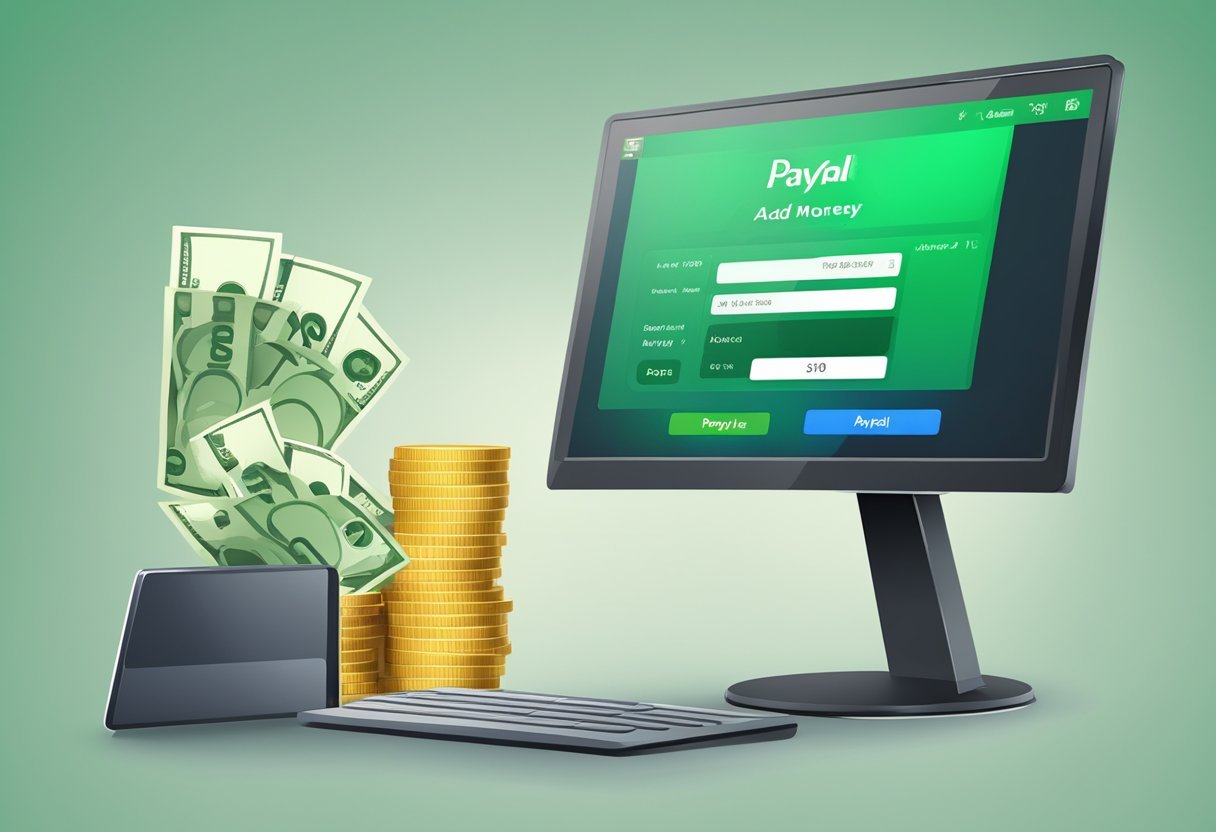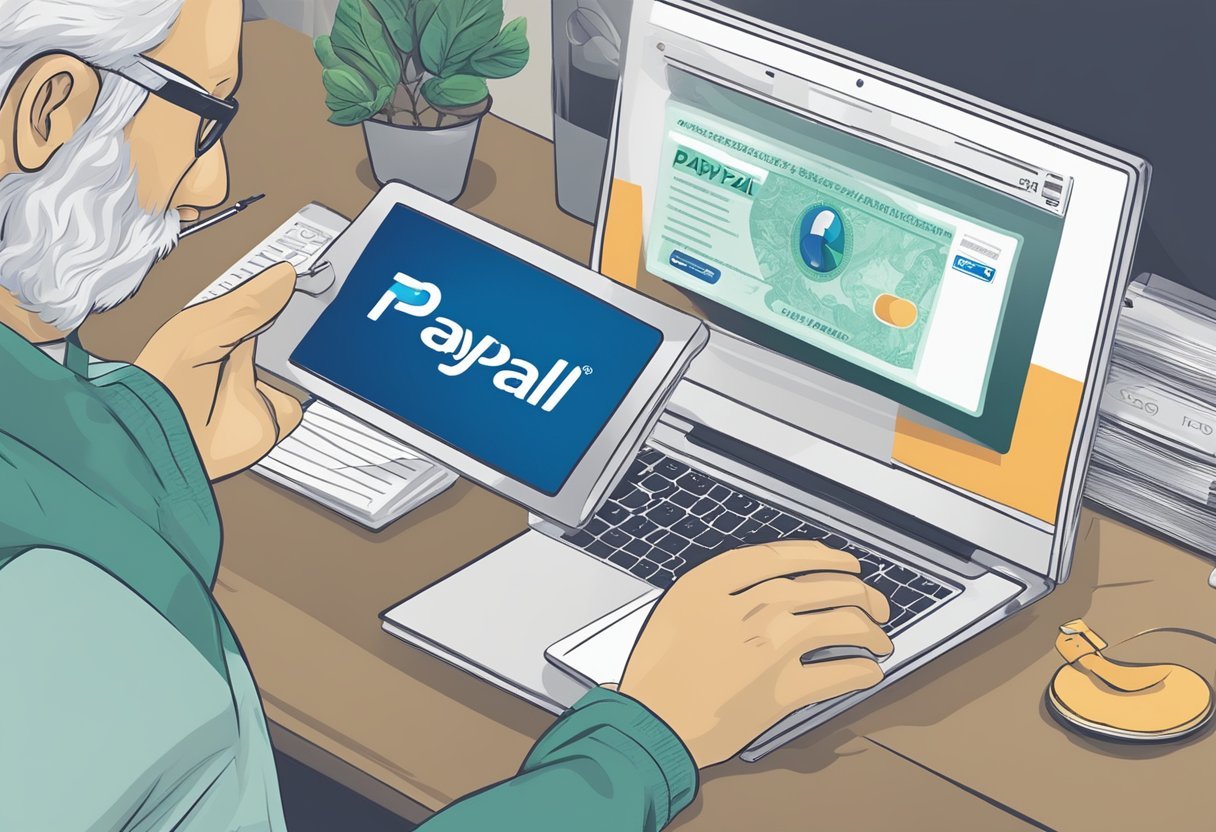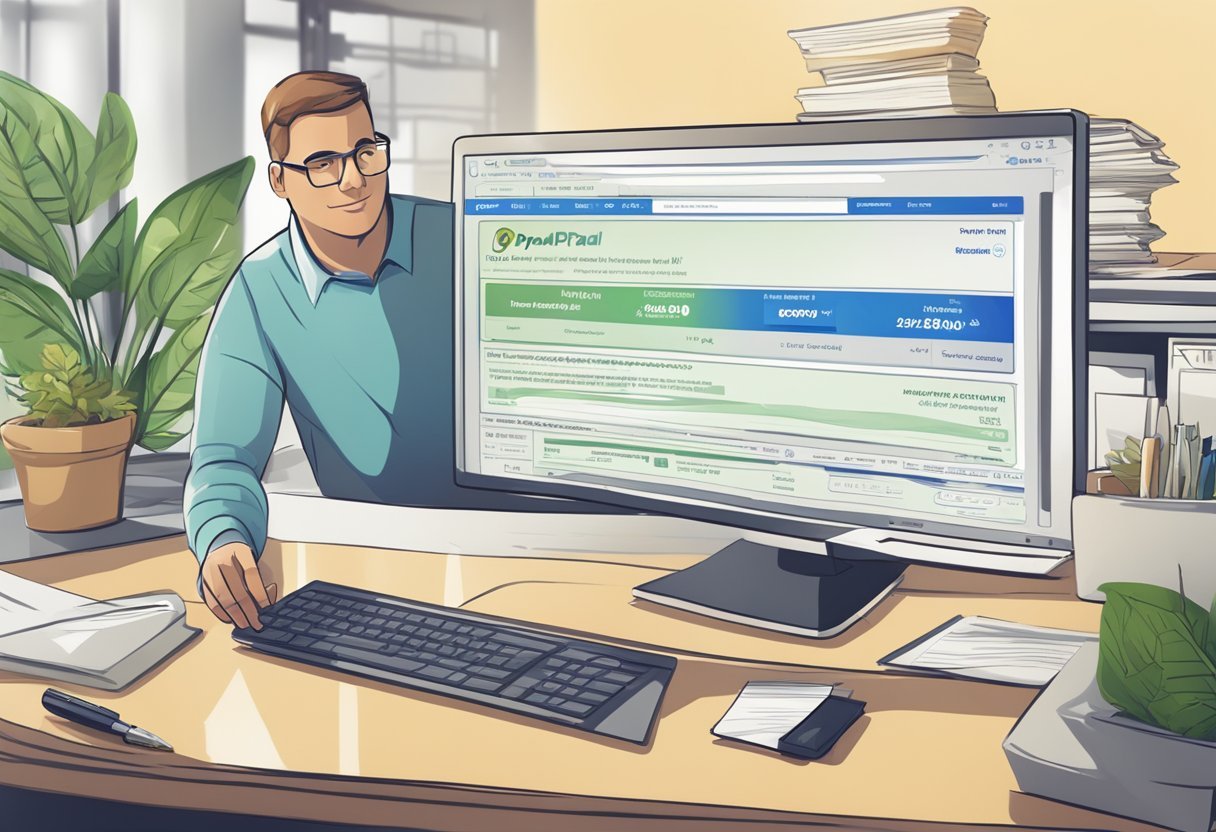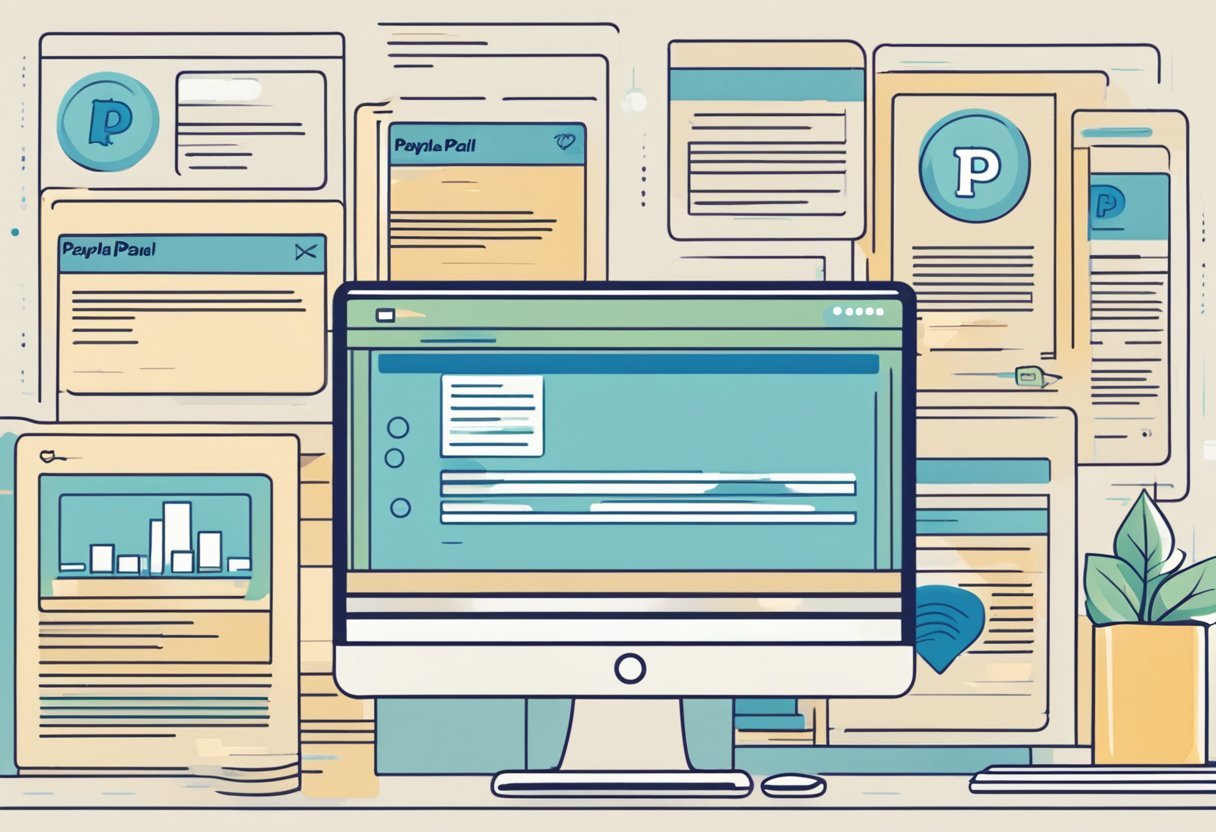PayPal Money Adder is often marketed as a tool that can add funds to your PayPal account without any cost. Many people wonder, “Is PayPal Money Adder a scam?” Yes, it is a scam. These tools promise free money, but they usually trick users into sharing personal information or downloading harmful software.

PayPal itself never supports any software that claims to generate money magically. Users should be wary of any tool or program that sounds too good to be true. Using such tools can lead to your personal data being stolen, your PayPal account being locked, or worse.
To protect yourself, always use legitimate ways to earn money. Stick to verified methods and avoid shortcuts that could endanger your financial security.
Understanding PayPal Money Adder

PayPal Money Adder tools claim to generate funds for users without real effort. They often come with significant risks and aren’t always what they seem.
What is PayPal Money Adder?
A PayPal Money Adder, often called a PayPal Money Generator, is software that supposedly adds money to a PayPal account. Users think it can create funds from nothing. These programs are widely distributed online through various websites and social media platforms. They typically ask for your PayPal account details and promise to transfer money instantly.
While this may sound appealing, these tools are often scams. They promise easy money but can lead to significant problems, including putting users’ personal and financial information at risk.
Risks Associated with Money Adder Software
Scams: Most PayPal Money Adders are scams. They prey on people looking for easy money. Once they have your account details, they can steal your information or even empty your account.
Security: Using these tools involves entering sensitive information into unverified software. This exposes users to potential data theft and privacy breaches. Hackers can use your personal information for fraudulent activities.
Legit: There is no legitimate software that can generate free money in a PayPal account. Official channels and PayPal’s own terms and services are very clear about this. Trusting such tools can lead to severe security issues.
Myths Versus Reality
Myth: PayPal money adders can generate free money.
Reality: These tools are not capable of creating funds out of thin air. They are designed to trick users into giving away personal information.
Myth: Some versions of the software are legit and work.
Reality: None of these tools are legitimate or safe. PayPal’s systems are secure, and any money generator would be illegal.
Myth: You won’t face any consequences.
Reality: Using such software can lead to frozen accounts, legal actions, and financial loss. It’s risky and not worth the potential damage.
In short, PayPal Money Adders are dangerous and should be avoided. They offer false promises and put users at serious risk.
The Mechanics of PayPal Scams

PayPal scams typically involve tricking users into giving up their personal information or money. Fraudulent schemes like phishing, fake emails, and account hacking are often used.
Common PayPal Scam Scenarios
Phishing: Scammers send fake emails pretending to be PayPal. These emails ask users to click on a link and login to their PayPal account. The link leads to a fake website designed to steal the user’s email address and password.
Fake Payment Confirmations: Some scammers send fake payment confirmation emails. They claim a user has received payment and needs to ship an item immediately. The payment, however, is not real.
Account Hacking: Scammers might hack into a PayPal account using stolen email addresses and passwords. Once inside, they can transfer the money to their own accounts or make unauthorized purchases.
How Scammers Exploit PayPal
Scammers use various techniques to exploit PayPal. They may rely on users not recognizing a phishing email. Fake emails often look very real, including PayPal logos and correct email formatting.
Another method involves taking advantage of weak passwords or reused passwords. If a scammer gets hold of email addresses and passwords from other sites, they can try these on PayPal accounts.
Scammers often use social engineering tactics. They trick users into revealing sensitive information by manipulating their emotions, such as fear or urgency. They may pose as PayPal support and ask for account details to “resolve an issue.”
Identifying and Avoiding Scams
Recognizing PayPal scams can protect your account and information. Any email asking for sensitive information like passwords should be considered suspicious. Official PayPal communication will never ask for your password in an email.
Users should check the sender’s email address carefully. PayPal emails will come from a valid PayPal domain, not from random or similar-looking addresses.
Creating strong, unique passwords for your PayPal account is essential. Avoid using the same password across different sites. Enable two-factor authentication for added security. Keeping your account safe involves being aware of the latest scam tactics and staying vigilant against fake emails and websites.
Evaluating PayPal Money Adder Claims

Many users question whether PayPal money generators are legitimate. It’s important to look at the claims, user reviews, and the reality of such promises to determine if they are trustworthy.
Assessing Legitimacy of Money Generators
PayPal money adders often claim to generate free money effortlessly. These tools promise users quick cash without much effort.
However, there is no evidence that these tools work. PayPal, being a secure financial service, does not endorse or support any money generator tools or programs. Thus, it’s highly likely that these claims are false and potentially dangerous.
Red flags to consider:
- No official support from PayPal.
- Requests for personal information.
- Claims of bypassing security protocols.
Reviews and Testimonials
User reviews paint a bleak picture of PayPal money generators. Many reviews report that these programs are scams designed to steal personal data or money.
Users often share experiences where they received no money and instead faced security issues after using these tools.
Common complaints include:
- Lack of actual money added to PayPal accounts.
- Potential phishing attacks.
- Overall dissatisfaction and warnings.
The Reality of Free Money Promises
The idea of free money is appealing but unrealistic. PayPal’s secure system is designed to prevent unauthorized transactions. Any tool claiming otherwise is likely misleading.
Programs that promise easy cash are often scams. Users need to be wary of offers that seem too good to be true. It’s essential to remember that legitimate ways to earn money typically require effort and are backed by reputable sources.
Legal and Ethical Considerations

When looking at PayPal money adders, one must consider their legality and ethical implications. Using such tools can result in serious consequences that extend beyond personal loss.
The Legality of Money Adder Tools
Money adder tools promise a way to generate funds in your PayPal account, but they are illegal. Users may face severe legal actions including fines or imprisonment. PayPal’s user agreement strictly prohibits the use of these tools.
These tools can be classified as fraudulent and criminal by law enforcement agencies. Authorities constantly monitor and investigate scams involving digital payment platforms. Misusing such tools could lead to being scammed or even facing criminal charges.
Ethical Implications of Using PayPal Adders
Ethically, using a PayPal money adder is highly questionable. It promotes dishonesty and unfair gain at the expense of others. Financial tools should be used responsibly and within legal boundaries.
Using these adders can damage personal integrity and trust in online transactions. Additionally, it can contribute to broader problems like funding criminal activities. Individuals must consider the broader impact of their actions on both themselves and the digital financial ecosystem.
Alternatives to PayPal Money Adders
There are many legitimate ways to earn money online without risking security issues or falling for scams. Additionally, protecting your PayPal account is crucial to ensure that your funds remain safe.
Legitimate Ways to Earn Online
One way to make money online is through online surveys. Websites like Swagbucks and Survey Junkie pay users to provide feedback. These platforms are free to join and offer cash or gift cards.
Another option is freelancing. Websites like Fiverr and Upwork connect freelancers with clients looking for various services such as writing, graphic design, and programming. Freelancers set their rates and can work on projects that match their skills.
Affiliate marketing is also a popular way to earn passive income. By promoting products through blogs or social media, individuals can earn commissions on sales generated from their referral links.
Online businesses like dropshipping and print-on-demand allow people to sell products without holding inventory. Platforms like Shopify and Etsy make it easy to set up an online store.
Protecting Your PayPal Account
Setting up two-factor authentication (2FA) adds an extra layer of security to a PayPal account. This involves linking a phone number to receive a code each time you log in, making it harder for unauthorized users to access the account.
Regularly monitoring your account for suspicious activities can help you catch any unauthorized transactions early. PayPal sends email notifications for every transaction, making it easier to spot irregularities.
Using a strong, unique password is essential. Avoid using the same password across multiple accounts and consider changing it every few months for better security.
Linking PayPal with your bank account rather than multiple credit cards can simplify account management. This strategy minimizes the number of accounts exposed if your PayPal credentials are compromised.
Ensuring your device’s security software is up-to-date can protect against malware and phishing attacks, which often target log-in credentials. Regular updates and security checks are crucial.
